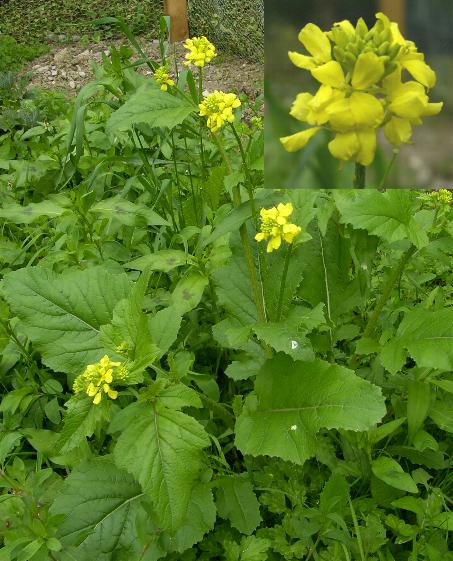Black MustardScientific Name: Brassica nigra |
Black Mustard is thought to be a native of southern Europe, but it has been cultivated for millennia so is distibuted widely. Most recorded sightings in Northern Ireland were in the nineteenth century, but it has been found in the Belfast area recently and the plant pictured here was growing in my mid Down garden in July 2008.
It is grown for its seeds which can be ground for use as a spice, although cultivars of India Mustard, B. juncea, have now mostly replaced it as its seeds are easier to harvest mechanically. In Indian cookery the seeds are added to hot oil or ghee where they break open to release a nutty flavour, or they are pressed to make a cooking oil.
In Eastern European folk medicine the seeds are ground in honey for use as a cough suppressant. A poultice of ground seeds with flour and water was applied to the chest until a stinging sensation was experienced, to treat chest infections in Eastern Canada; known as 'mouche de moutard'.
The leaves The young leaves can be added to a salad.
The yellow flowers have four petals typical of the Brassica family, and can be found for much of the year. After pollination the long seed-pods develop and when mature they burst open to disperse the spherical seeds.
The plants are easily uprooted and can be added to the compost if not bearing seed.
Weedkillers to use:-A residual herbicide should prevent germination on paths.
Paraquat, Diquat contact action gives an immediate knock-down, so it should not have time to set seed, if caught in time.
Follow these links for further details on Weeds, Weed Removal and Weed Prevention.
